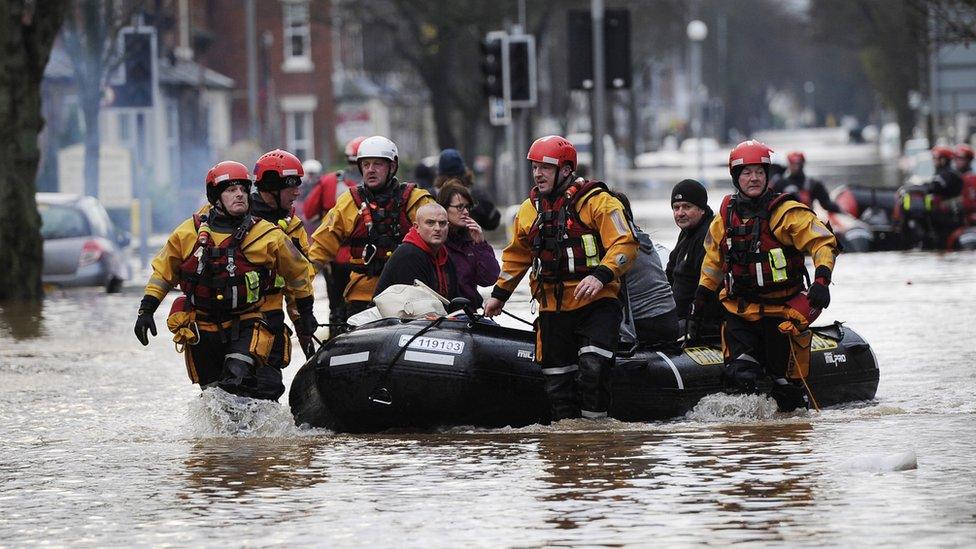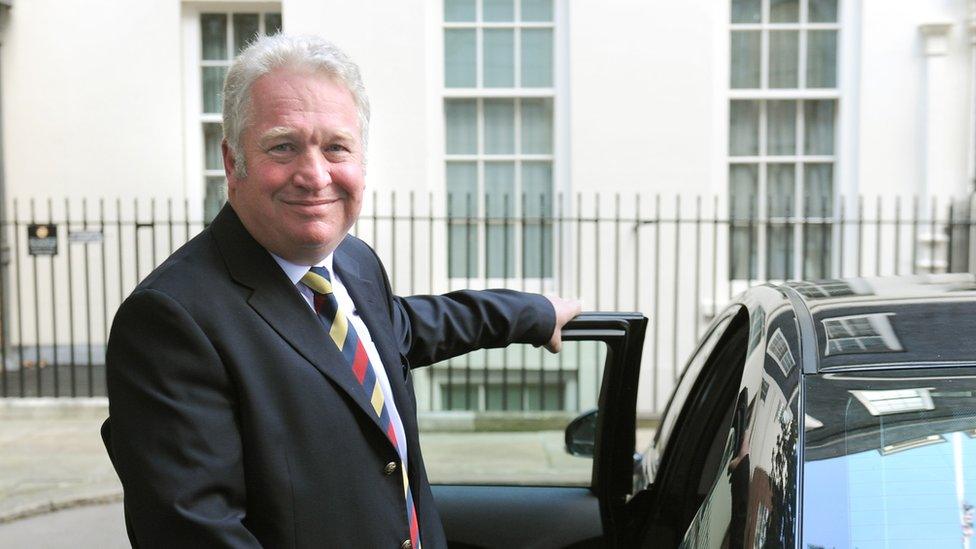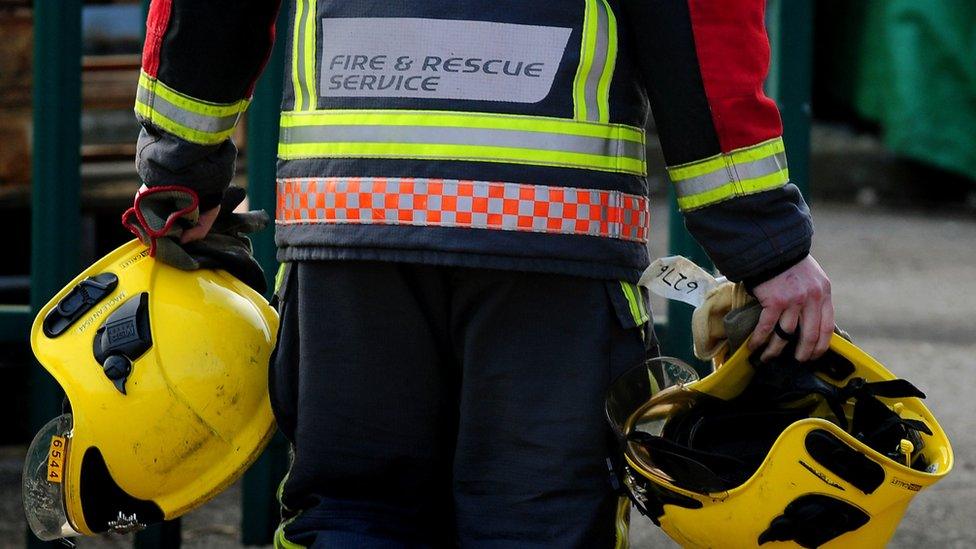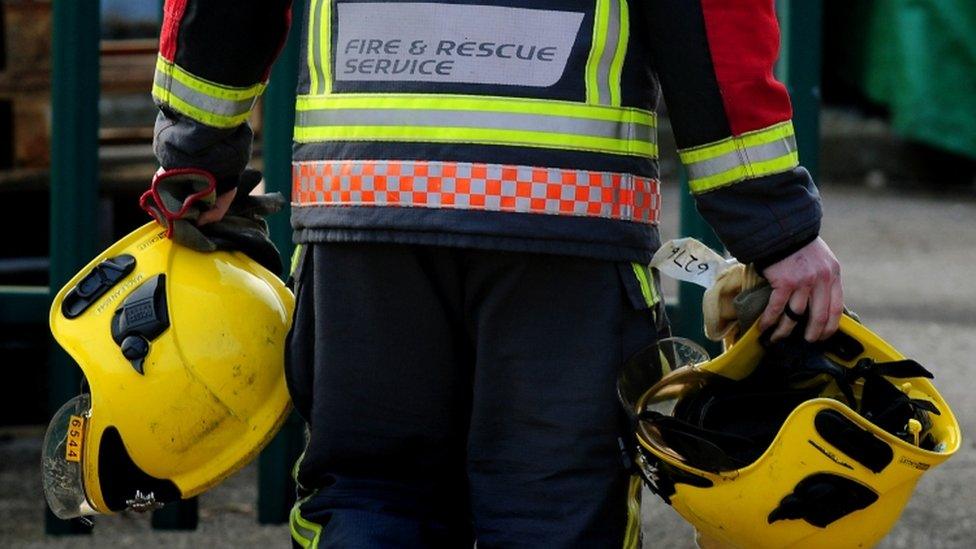Home Office takes control of fire and rescue services
- Published

A fire and rescue team in Carlisle evacuating people from their homes during recent flooding
The Home Office has taken control of fire and rescue policy in England ahead of planned closer working with the police, the government has said.
The Home Office said the move would allow a "radical transformation" of how the police, fire and rescue co-operate.
The services were previously the responsibility of the Department for Communities and Local Government.
MP Mike Penning will take over the portfolio as minister for policing, fire, criminal justice and victims.
The Home Office said the response across the country to recent flooding showed "how well the police and fire service already worked together".
Under government plans consulted on last year, external, police and crime commissioners (PCCs) will be able to take control of fire services in their area.
'Empire building'
The elected officials will be able to put in place a single "employer", led by a senior officer in charge of hiring all local fire and police personnel.
The new strategy could lead to arrangements such as sharing back office functions - although the government insists they will remain operationally independent.
However, unions have attacked the proposals, with the Fire Brigades Union calling them "dangerous".
FBU general secretary Matt Wrack described the proposal as a "half-baked suggestion" and accused "one or two" PCCs supporting the plan of "empire building".
There was no support for the plans among firefighters, police officers or local communities, "and yet the government seems to be intent on forcing it though", he said.

Mike Penning will become minister for policing, fire, criminal justice and victims
Mr Penning, a former firefighter, said closer collaboration between the police, fire and rescue services would deliver "significant savings and benefits for the public".
"This is about smarter working, reducing the cost of back office functions and freeing up the time of frontline staff," he said.
"This move will have benefits for both services. Fire authorities can learn from the journey that police forces have undertaken on reform over the last five years. Equally, the success of fire and rescue services in prevention holds important lessons for the police."
- Published19 December 2015

- Published11 September 2015
